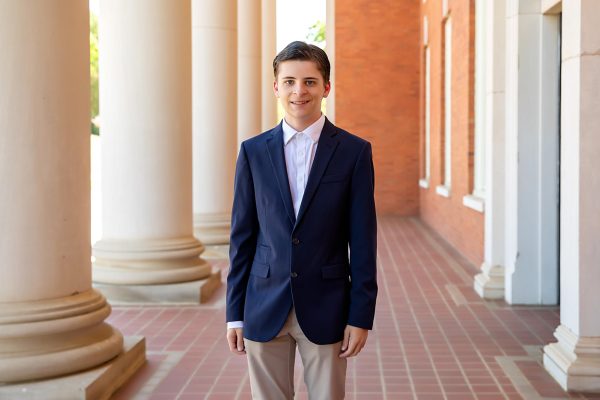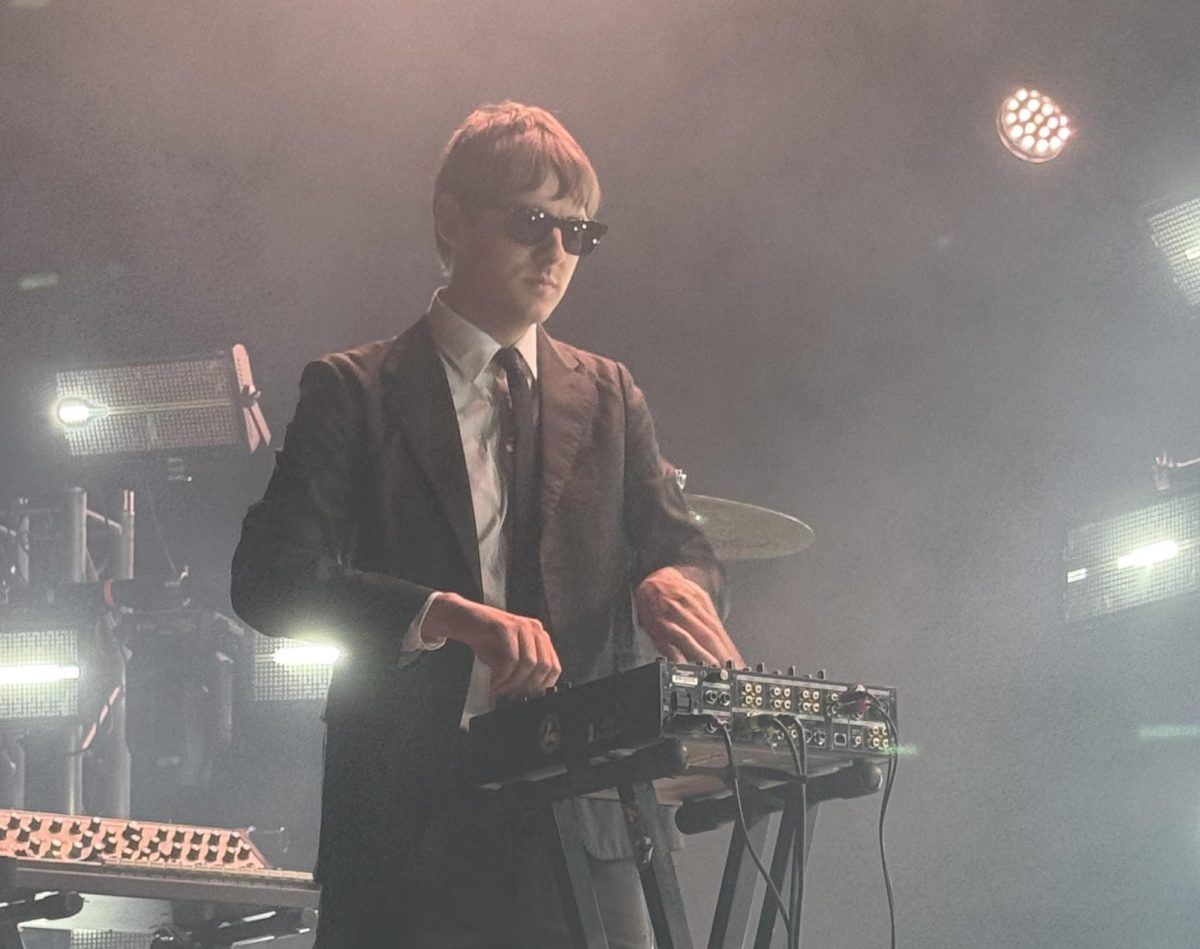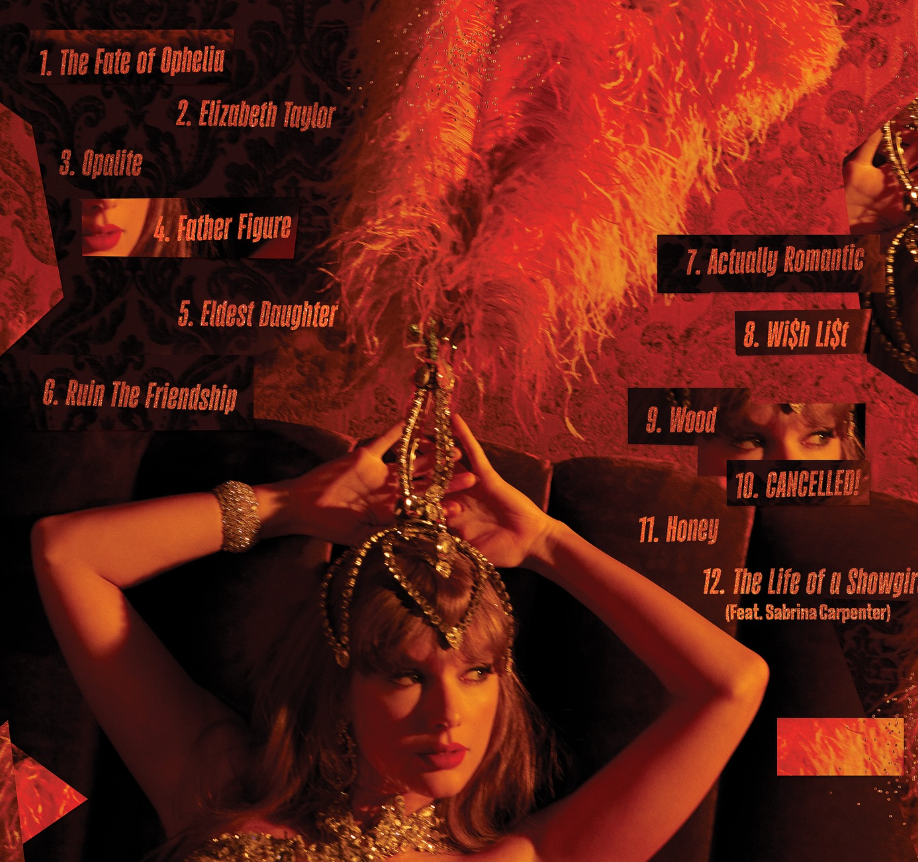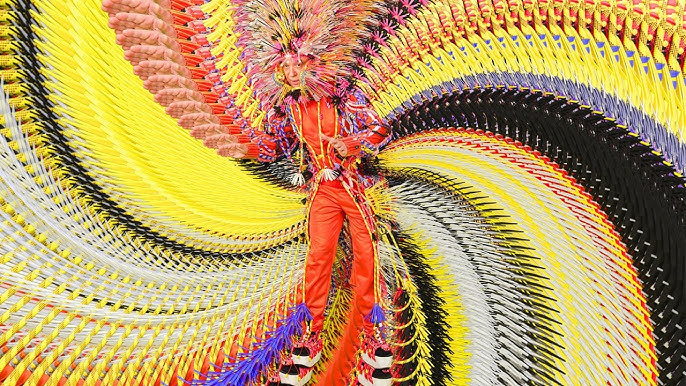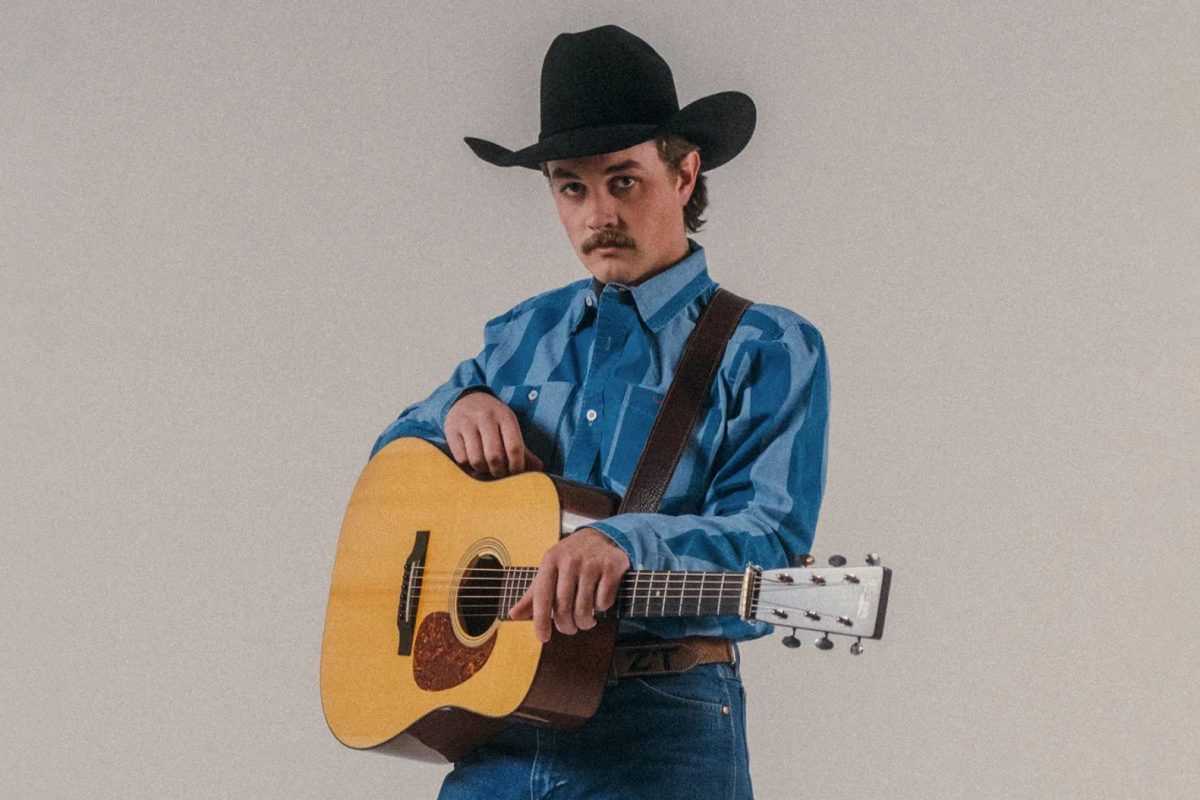Reviews of Black Country, New Road’s recent music often feel like eulogies for a previous incarnation of the band. Its first two albums, recorded with singer-guitarist Isaac Wood, are rightfully hailed as some of the best of the 21st century. Wood’s amicable but abrupt departure from the band shortly before the release of their sophomore record “Ants From Up There” immediately lent Black Country, New Road’s metanarrative a mythical heft and created a clear demarcation between two distinctive eras of the group.
It’s true that their subsequent two releases, “Live at Bush Hall” and now “Forever Howlong,” are intentionally distinct from the Isaac Wood era. Still, it’s not entirely accurate to act as if Wood’s departure stunted the band’s evolution or set them back, as some have argued. As early as 2022, band members spoke of their intention to do something completely different on each record. The Black Country, New Road that we hear on “For the first time” radically differs from the band that we hear on “Ants From Up There.”
Likewise, “Forever Howlong” is unlike anything else the band has done while still being quintessentially Black Country, New Road. Where their first three albums are mainly composed of long buildups to cacophonous climaxes, “Forever Howlong” is much more subtle. The 11 songs on the new album don’t have the immediate, overwhelming effect of masterpieces like “Sunglasses” or “Basketball Shoes,” but some are just as rewarding.
In the leadup to the album’s release, I was very excited to hear that keyboardist May Kershaw had written and would sing lead vocals on three of the songs. Her “Turbines/Pigs” from “Live at Bush Hall” is maybe my favorite song of the 2020s, and I’d gotten to hear some of her new compositions when I saw the band in concert last April.
“The Big Spin,” “Forever Howlong” and especially “For the Cold Country” did not disappoint. Kershaw’s voice is genuinely amazing, and her abstract, folk-influenced lyrics are also compelling. These songs feature some of the densest arrangements on the album, combining Kershaw’s virtuosic piano and harpsichord playing with the rest of the band’s equally skilled instrumentation. “For the Cold Country,” in particular, is extraordinarily complex but is performed exceptionally by all six band members.
Another elaborate song is bassist Tyler Hyde’s “Nancy Tries to Take the Night.” It’s effectively a two-part song bridged by a carefully constructed transition. Hyde sings on nearly half of the album’s songs and does so exceedingly well. Her lower register fits well with her emotional lyrics.
The remaining tracks on the album are written and sung by violinist Georgia Ellery. The songs are reminiscent of her work with Jockstrap, forgoing dramatic song structures in favor of hypnotic grooves. This is especially successful on the album’s closing song, “Goodbye (Don’t Tell Me),” where Ellery’s vocals overlay a delicate, slowly evolving instrumental.
This album’s tripartite division of vocal duties is very different from “For the first time” or “Ants From Up There,” which are full of intense, personal songs written from one specific perspective. The variety displayed on “Forever Howlong” is one of its strongest traits, allowing for greater sonic diversity than was present on earlier albums. The album has a few minor issues compared to their previous releases, though.
The track sequencing on this record isn’t as faultless as on their previous three. It feels like the band attempted to replicate the slow build of “Ants From Up There,” beginning with shorter songs and ending with a set of expansive epics. “Besties” feels too truncated to be a satisfying introduction, while “For the Cold Country” would have served better as an opening or closing song than its current placement in the middle of the running order.
I also don’t love the arrangements of some of the quieter songs, like “Goodbye (Don’t Tell Me).” That track stood out in pre-release live performances because of the way its delicacy contrasted with the crashing crescendos of compositions like “Turbines/Pigs” and “Dancers.” The album version is a great closer, and the more maximalist arrangement works to some extent, but I prefer the sparse, gentle early versions.
These complaints are ultimately minor, however. This release is still an exceptional set of songs by one of the best bands around. I don’t think it’s my favorite release of theirs, but it’s a worthy addition to their canon. It contains some of their best work to date, and I’m very excited to see how they reinvent themselves in the future.




